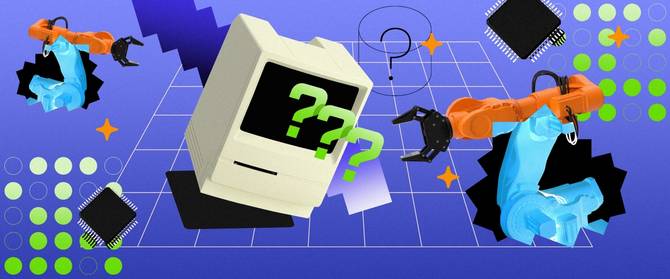Happy Martin Luther King Jr. Day. Here’s a brief and numbers-based look at Tesla’s increasingly ambivalent position:
- Its brand favorability is down 15% year over year, per Morning Consult Brand Intelligence.
- It just cut prices for some vehicles in the US by 20% and ~13% in China last week.
- Its sales grew by 40% last year—lower than its 50% target—while the overall US auto industry shrank by ~8%.
- It had 65% of the US EV market share through the first nine months of 2022, per S&P Global Mobility data.
- Its stock price fell ~65% in 2022.
Where it goes from here is anybody's guess.
In today’s edition:
 2023: The year of…more discreet 5G equipment? 2023: The year of…more discreet 5G equipment?
 The “quantum encryption apocalypse” could be coming The “quantum encryption apocalypse” could be coming
 Coworking Coworking
—Jordan McDonald, Tom McKay, Dan McCarthy
|
|
Michael Vi/Getty Images
The phrase “cellular network” might conjure images of hundred-foot towers, but the next phase of 5G could be focused on equipment that’s a bit more discreet.
Zoom in: All three of the US’s largest public cell-tower companies have said they expect 2023 to be a big year for small cells, as 5G buildouts shift away from 5G macro deployments toward smaller mobile installations and telcos begin to finish their mid-band 5G rollouts.
- A small cell is a low-cost radio access point with a low radio frequency, power output, footprint, and range.
Houston-based Crown Castle is one of the country’s largest cell-tower operators, and in addition to its formidable network of traditional cell towers, it operates a large number of small cells throughout the country. Crown Castle then rents access to that infrastructure to telcos and private companies.
- The company, which saw site rental revenue grow by 8% year over year in Q3 2022 to nearly $1.6 billion, currently operates about 115,000 small cells throughout the country, in cities like Seattle and New York City.
Looking ahead...Crown Castle typically deploys about 5,000 small cells a year, including in 2022, but plans to double that rate to 10,000 this year, per its Q3 2022 earnings release, highlighting its rising emphasis on this tech. Click here to keep reading about the rise of small cells.—JM
|
|
TOGETHER WITH WEST MONROE
|
|
Tech companies are feeling the pinch. With all the economic volatility and labor market madness, these companies are expected to reduce their spend—all while trying to scale their profitability.
But who are we kidding? You already knew that. What you might not know is that West Monroe has resources to help you do more with less. Their new report tackles tech’s key issues, like:
- focusing on efficient product-led growth by creating the products and features that consumers want
- prioritizing the customer journey and experience
- how revenue operations (aka the integrated set of data and insights, processes, and systems used to streamline an organization) can help companies grow
Survive the squeeze. Get the full report here.
|
|
Sakkmesterke/Getty Images
Academics, security pros, and policymakers recently swarmed Washington, DC, for the first-ever Quantum World Congress, a mass gathering of quantum computing experts. Among the biggest topics of discussion, according to Axios, was the “quantum encryption apocalypse.”
That’s the concept that some of the most widespread encryption algorithms in use today are vulnerable to codebreaking by next-generation computers operating on principles of quantum mechanics. The biggest unknown might not be when this threat arrives, but what cybersecurity pros can do to prepare for it.
What’s quantum uncertainty about? Traditional computers use bits, a logical state with two possible values: 1 or 0. Quantum computers rely on qubits, which can be both 1 or 0 simultaneously.
-
In theory, qubits can generate solutions to problems in hours or days that would take classical computers exponential amounts of time—say, trillions of years—like cracking RSA encryption.
Existing quantum computer prototypes aren’t accurate enough to be of use solving practical problems. Yet that could rapidly change if or when certain engineering problems like noise mitigation are solved. Click here to keep reading this story from IT Brew.—TM
|
|
Manuel Oros
Coworking is a weekly segment where we spotlight Emerging Tech Brew readers who work with emerging technologies. Click here if you’d like a chance to be featured.
How would you describe your job to someone who doesn’t work in tech?
Herding really, really smart and passionate cats. Joking aside, I believe my role is to exercise sound judgment and ensure we focus on the most valuable features to Crunchbase’s customers. Specifically, by figuring out what we should create next and why, how it can be done, and how to gauge if we’re succeeding.
What’s your favorite emerging tech project you’ve worked on?
I loved working on our new Similar Companies feature at Crunchbase. It uses machine learning to help dealmakers discover companies they should know about and prospect to based on the profile they are already viewing.
On the surface, the task seems simple. Given company A, return similar companies. Pretty straightforward. But the journey proved challenging. We started simple, but with a forward-looking infrastructure. This allowed us to progressively build a more complex neural network that continuously improves the data quality for our users. It’s a project the team is very proud of and a benchmark for future data science projects here.
What emerging tech are you most optimistic about?
I’m most hopeful about self-supervised learning enabling us to make real headway in artificial intelligence. It presents a solution to the bottleneck for building more intelligent generalist models without requiring massive amounts of labeled data. I believe these future models will someday allow us to create software that does the job for you.
For example, Spotify can connect people with artists. But what if Spotify could actually make music specifically for you? Or if Airbnb could design and manage vacations on your behalf?
|
|
Francis Scialabba
Stat: The PC market data is in—from three different analyst firms—and it’s not looking good. Estimates for Q4 PC sales fell by ~28%, according to separate estimates from Gartner, IDC, and Canalys, per TechCrunch.
Quote: “Ninety-eight percent of CEOs in the US think there is going to be a recession—but it’s going to be short and shallow.”—Dana Peterson, the Conference Board’s chief economist, to the WSJ
Read: A deep look at the FAA’s beleaguered efforts to modernize its computer systems.
Download: New year, new you?Make 2023 your best year yet with our Resolution Tracker Bundle. From budgeting, to wellness, to habit tracking—we’ve got you covered. Get yours now.
Personal finance tips: Money Scoop is the 3x-a-week personal finance newsletter that makes you smarter about your $$$. You’ll learn how to better invest, budget, spend, manage your taxes, and much more—all for free. Subscribe now.
|
|
-
Congress nixed the US Army’s request for a cool $400 million to buy thousands of Microsoft HoloLens headsets this fiscal year.
-
Generative AI is introducing new security risks for companies.
-
Apple is reportedly working on touchscreen Macs, with a potential 2025 debut for touchscreen MacBook Pros.
-
CNET is reportedly publishing articles generated by an AI system. (
 ) )
-
Alphabet’s healthcare division, Verily, reportedly cut 200 jobs—about 15% of its staff.
-
Lucid beat its production goal for its luxury EVs but fell short on deliveries.
|
|
Francis Scialabba
Enough chit-chat—it’s time to see how well you remember last week’s news.
Click here to play this week’s trivia.
|
|
Catch up on the top Emerging Tech Brew stories from the past few editions:
|
|
|
Written by
Jordan McDonald, Tom McKay, and Dan McCarthy
Was this email forwarded to you? Sign up
here.
 Guide →
What is AI?
Guide →
What is AI?
 Guide →
What is 5G?
Guide →
What is 5G?
Take The Brew to work
Get smarter in just 5 minutes
Business education without the BS
Interested in podcasts?
|
ADVERTISE
//
CAREERS
//
SHOP 10% OFF
//
FAQ
Update your email preferences or unsubscribe
here.
View our privacy policy
here.
Copyright ©
2023
Morning Brew. All rights reserved.
22 W 19th St, 4th Floor, New York, NY 10011
|
|










